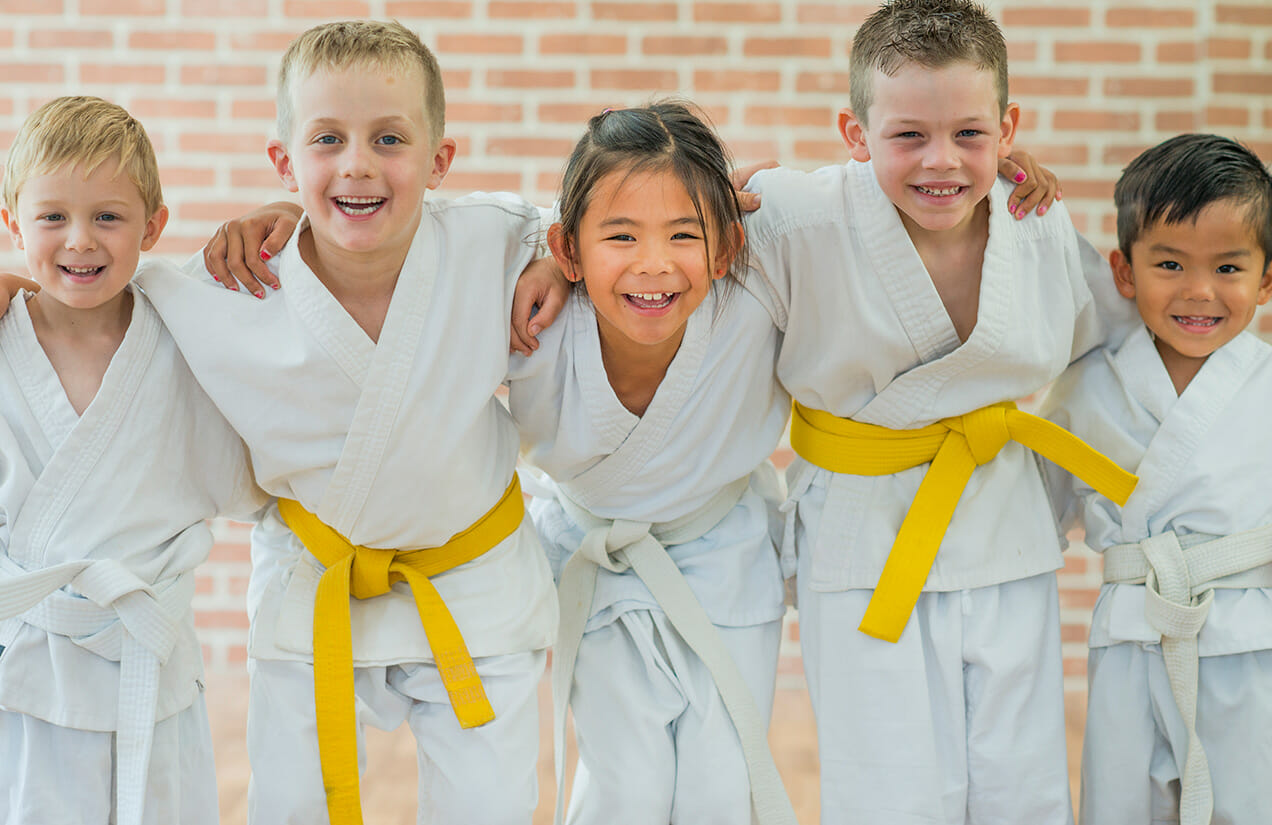
Growing with Karate: Why Martial Arts Is Ideal for Child Development
In a rapidly evolving world, where children are faced with ever-increasing challenges, parents are constantly seeking ways to provide them with holistic development. One avenue that has gained significant attention is martial arts, particularly karate. Martial arts offer a multitude of benefits that contribute to physical, mental, emotional, and social growth. As we delve into the various aspects of how karate aids in child development, it becomes evident that this ancient practice is more than just a form of self-defense; it is a transformative journey that nurtures young minds and bodies.
Physical Growth: Fitness, Coordination, Motor Skills, Strength Enhancement
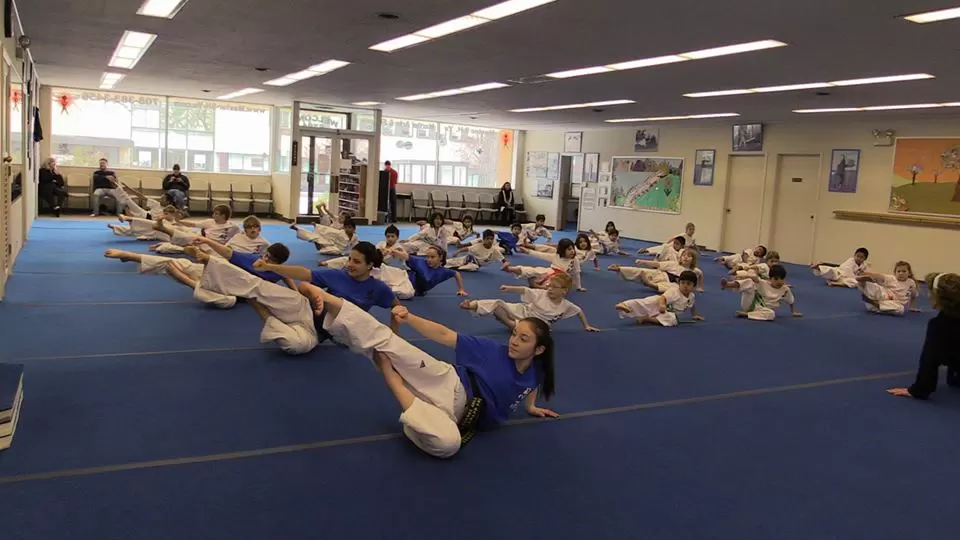
Physical activity is not only enjoyable but also essential for the healthy development of children. Engaging in regular exercise helps them build strong bodies and establish healthy habits that can last a lifetime. Karate, with its rigorous training routines, stands out as an exceptional avenue for promoting optimal fitness levels in children. When enrolled in the best karate school, children embark on a journey that encompasses physical, mental, and emotional growth.
Mental Discipline: Focus, Concentration, Self-Control, Patience Through Karate
Martial arts require unwavering mental discipline, a trait that has far-reaching benefits for child development. It cultivates the ability to focus and concentrate on the task at hand, a skill that is transferrable to academic pursuits and everyday life. Through rigorous training and practice, children learn self-control and patience, as progress in karate is not immediate but gradual. The mental fortitude developed in this sport empowers children to navigate challenges with a calm and composed demeanor, enhancing their problem-solving skills and decision-making abilities.
Emotional Resilience: Handling Stress, Building Confidence, Emotional Regulation
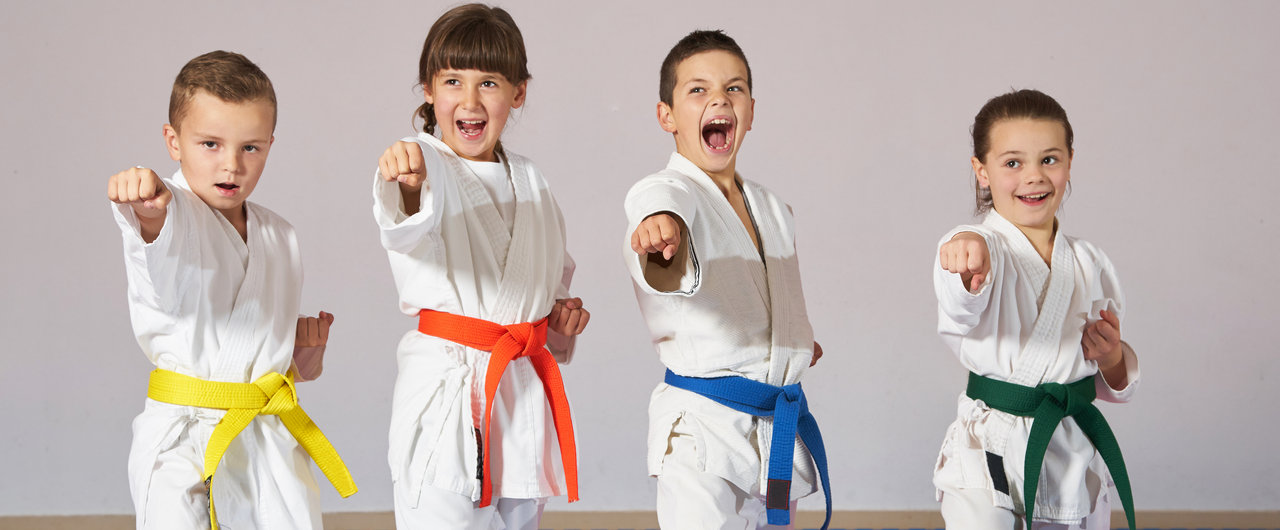
Childhood is marked by emotional ups and downs, and learning to navigate these emotions is crucial. This sport provides a safe and structured environment for children to build emotional resilience. The practice teaches them how to handle stress and anxiety, channeling their energy into constructive outlets. As children master new techniques and progress through belt levels, their self-confidence grows. This newfound confidence extends beyond the dojo, influencing their interactions and pursuits outside of this sport. Moreover, the discipline of martial arts equips kids with tools for emotional regulation, enabling them to express themselves effectively and manage conflicts in a healthy manner.
Social Skills: Respect, Teamwork, Communication Fostered by Martial Arts
Participating in karate introduces children to a community that emphasizes core values such as respect, teamwork, and effective communication. In the dojo, students learn to respect their instructors, peers, and the art itself. Collaborative activities and partner exercises foster a sense of teamwork, teaching kids to work harmoniously with others. Clear communication is essential in martial arts, where understanding instructions and conveying intentions are vital. These social skills extend beyond the dojo, helping kids form meaningful relationships and excel in various social settings.
Goal Setting: Achievable Milestones, Sense of Accomplishment in a Karate
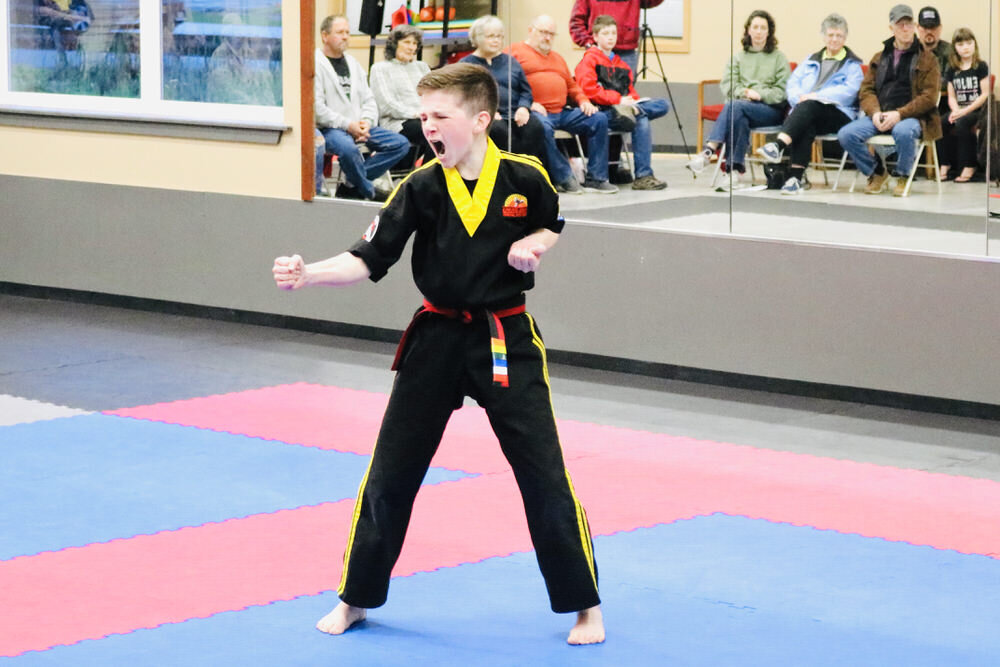
Setting, and achieving goals are fundamental life skills, and karate provides a structured framework for youngsters to learn this valuable lesson. As juniors progress through different belt levels, they set achievable milestones for themselves. The incremental nature of karate advancement teaches them the importance of consistent effort and dedication. With each belt earned, kids experience a profound sense of accomplishment, boosting their self-esteem and instilling a solid work ethic. These experiences lay the groundwork for a future where they approach challenges with determination and resilience.
Conflict Resolution: Teaching Peaceful Solutions, Reducing Aggression via Karate
Conflict is an inevitable part of life, and karate equips children with effective conflict resolution strategies. The philosophy of martial arts emphasizes the avoidance of unnecessary conflict and the promotion of peaceful solutions. Through discipline and respect, youths learn to control their impulses and respond thoughtfully to difficult situations. The physical aspect of karate allows kids to channel their aggression in a controlled environment, reducing the likelihood of aggressive behavior outside the dojo. By internalizing the principles of conflict resolution, juveniles develop into empathetic individuals who contribute positively to their communities.
Character Building: Values, Ethics, Integrity Nurtured Through Martial Arts
Martial arts are steeped in values and ethics that shape children’s character. Integrity, humility, and perseverance are among the core principles that martial arts impart. Children learn to uphold these values both in and out of the dojo, fostering a sense of responsibility and ethical conduct. Karate instructors serve as role models, guiding children to make ethical choices and exhibit moral integrity. These character-building lessons provide a strong foundation for personal and professional success, as kids grow into adults who prioritize honesty, empathy, and principled behavior.
Self-Defense: Empowering Children, Safety Awareness Through Karate Training
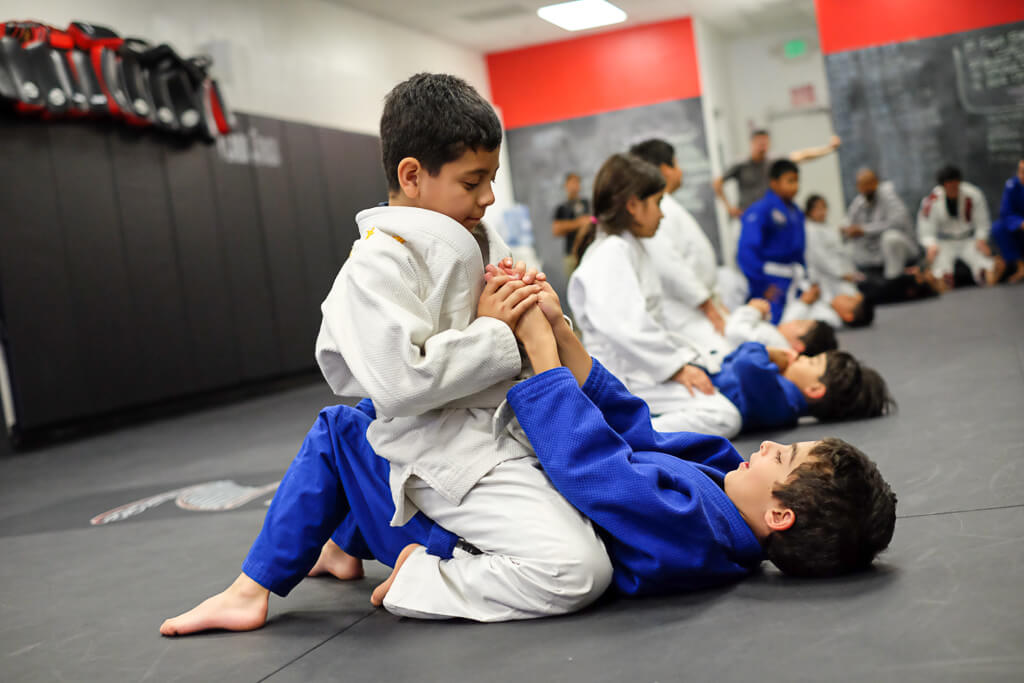
In an increasingly unpredictable world, self-defense skills are invaluable. Karate empowers children with practical techniques to protect themselves should they ever face danger. Beyond physical techniques, karate training also instills a heightened awareness of their surroundings, teaching kids to assess risks and make informed decisions. This knowledge fosters a sense of security and self-assurance, allowing children to navigate their environment with confidence. By learning self-defense, youths gain a crucial life skill that enhances their personal safety and well-being.
Psychological Benefits: Reduced Anxiety, Improved Self-Esteem, and Mental Balance
The psychological benefits of karate extend far beyond physical fitness. Engaging in regular karate practice has been shown to reduce anxiety and stress levels in children. The meditative aspects of martial arts, combined with the discipline of course, promote mental balance and emotional well-being. As children achieve milestones and overcome challenges in karate, their self-esteem and self-worth soar. This positive self-perception transcends into other aspects of their lives, leading to improved academic performance and healthier interpersonal relationships.
Conclusion: Holistic Growth via Karate; Lifelong Skills for Child Development
In a world where child development is multifaceted, karate emerges as a transformative tool that nurtures growth in various domains. From physical fitness to emotional resilience, from social skills to conflict resolution, the benefits of karate are extensive and enduring. The journey through martial arts instills values, cultivates character, and equips kids with a comprehensive skill set that extends far beyond the dojo walls. As parents and educators, we have a unique opportunity to foster holistic development in children by embracing the enriching journey that karate offers. By investing in their martial arts journey, we empower children to become well-rounded individuals who are poised to succeed in all facets of life.
